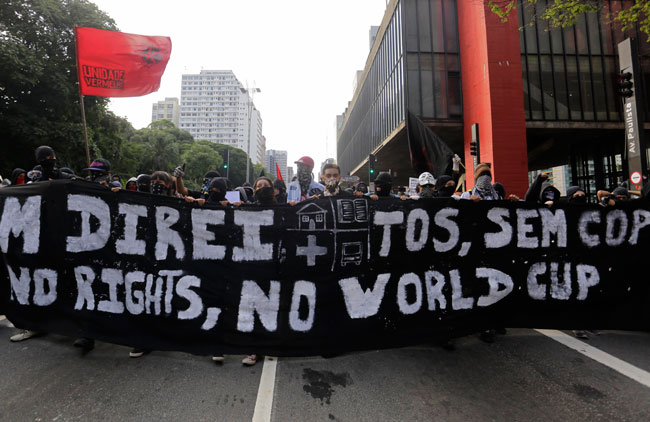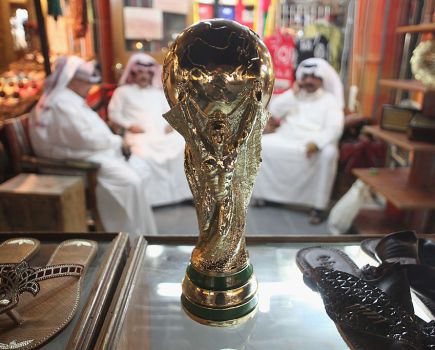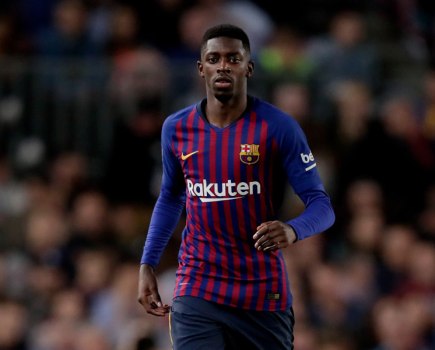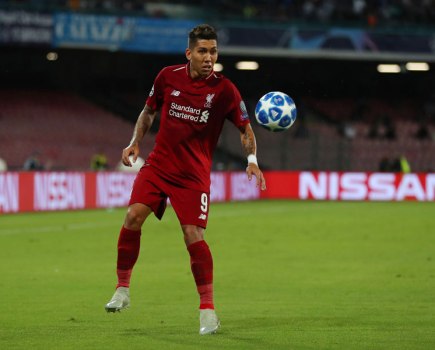Bid cities and countries, whether chasing the World Cup or Olympic dream, face a more complex ‘sales’ test than even those executive committees and evaluation commissions of bountiful international sports federations.
Nowadays the people are demanding their voice be heard.
Last weekend, for instance, a re-eruption of street protests in Sao Paulo was merely a dummy run ahead of more serious stuff nationwide during Brazil’s football fiesta in June and July.
Such demonstrations will not be seen in and around Sochi during next month’s Winter Olympics. But this says more about the defensive aggression of an authoritarian state than any lack of fervour about the issues.
Some years back this writer recalls being challenged by Dmitry Chernyshenko, president and ceo of Sochi 2014, to explain why protest movements arraigned the Olympics rather than the World Cup.
Back then the Games were perceived as the single natural magnet for protest because of the high-falutin’ moral stance expressed in the Olympic Charter.
But that was then; this is now.
Today’s angry young men (and women), growing up politically in a post-bank-crash society, have found daily-life targets much closer to home than nebulous, generalised issues such as environment and corruption.
Hence the newly-enlightened youth of Brazil rose up against a perceived imbalance between expenditure on the World Cup and expenditure on social welfare.
An ironic twist to that simplistic confrontation emerged also at the weekend when Carlos Alberto Parreira became the first senior Brazilian football official to attack the delays not merely in completing infrastructure projects but even starting them.
Now 70, Parreira is national team co-ordinator in support of coach Luiz Scolari. But he spoke with the authority of a man who has seen more World Cups at close range than any other Brazilian.
Parreira coached Brazil to World Cup victory in 1994, was boss again in 2006 and has also managed four other nations at the finals. He has a particular knowledge of the demands on a host nation from his experience with South Africa four years ago.
Beyond that, he was also a member of the Rio de Janeiro bidding team which helped land the Olympic Games in Copenhagen in 2009.
Until now Brazilian football bosses, from confederation president Jose Maria Marin to Scolari to the players, had refused to comment directly about the inadequate state of preparations (Six of the 12 stadia missed world federation FIFA’s delivery deadline of last December 31).
But they are not oblivious. Scolari and his players went public in support of fans’ democratic right to take to the streets. So did organising committee front man Ronaldo, albeit only after he had been pilloried across Brazil for a horribly naive initial reation.
Parreira’s comments, to a Brazilian radio channel, illustrated that even the most experienced members of the technical staff are becoming increasingly concerned about what may unfold off the pitch in June and July.
Sports Minister Aldo Rebelo, not always commander of the tightest grip on events, was correct with warning words back in December. Rebelo cautioned that the street protests during last year’s Confederations Cup were largely spontaneous but that demonstrations would be better organised during the World Cup itself.
Brazilian President Dilma Rousseff insisted last week, to both FIFA president Sepp Blatter and IOC leader Thomas Bach, that her security authorities would deliver safe games and Games.
But words and actions remain merely distant cousins.
The panicky shooting of a young man by military police during the Sao Paulo protests suggests it will not take much of a spark to convert peaceful protest into murderous mayhem.
One of the repeated complaints this writer found among protesters last June was about the democratic deficit: simply, they had not been asked whether they wanted Brazil to host the World Cup.
Hence the protests were in part a reaction against an older governing caste (Havelange, Teixeira, Nuzman, etc) who never felt a need to answer to anyone, let alone the population at large, over their sporting and financial power games.
The International Olympic Committee has always put great store by local popularity polls during its bid evaluation process (Bearing that in mind, and remembering the debate, it’s even more of a wonder that London ever landed 2012).
FIFA has never bothered to worry about World Cup popularity. Football is the world’s most overwhelmingly dominant sport and it never crossed the mind of anyone in Zurich that a country’s citizens – shock! horror! – might not want to splash out on hosting the event.
The IOC is learning that and more.
Barcelona scrapped a bid for the 2022 Winter Olympics on orders of its own national Olympic committee, Stockholm was killed off by its city council and Munich dropped out after a referendum defeat.
FIFA president Blatter frequently expresses a conviction that Brazil will be all right on the World Cup night because “football here is a religion.” But that is the opinion of an elderly foreigner who cannot conceive that the man and woman in the Rio or Sao Paulo street does not view the World Cup through similar rose-coloured spectacles.
When big events are up for grabs, sport needs to treat the people as partners rather than paving stones . . . walking with them rather than on them.








